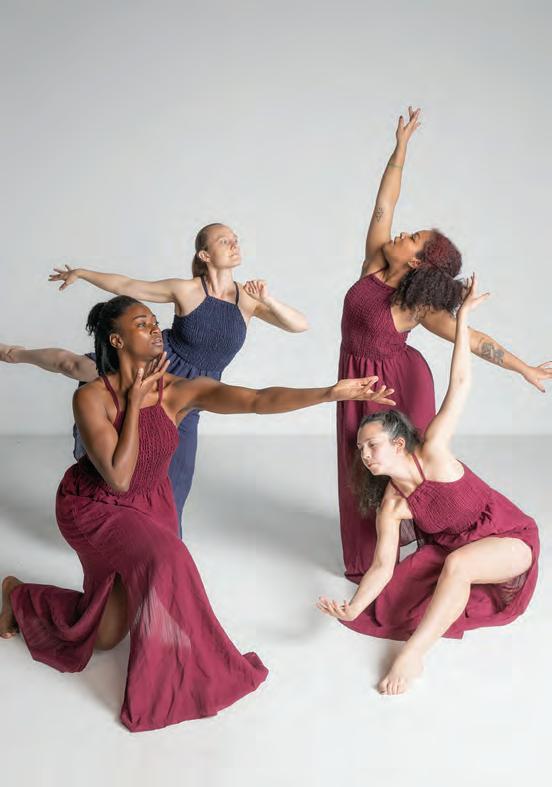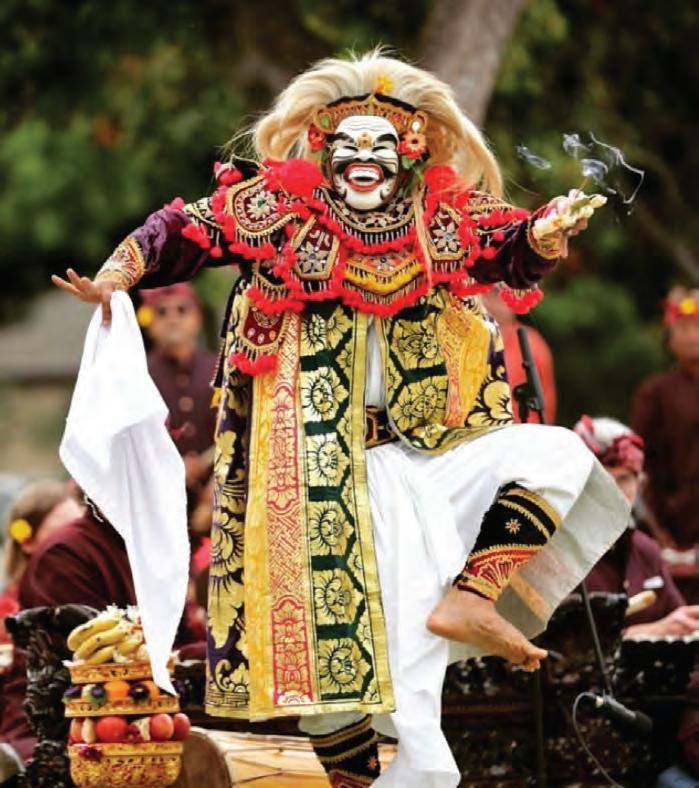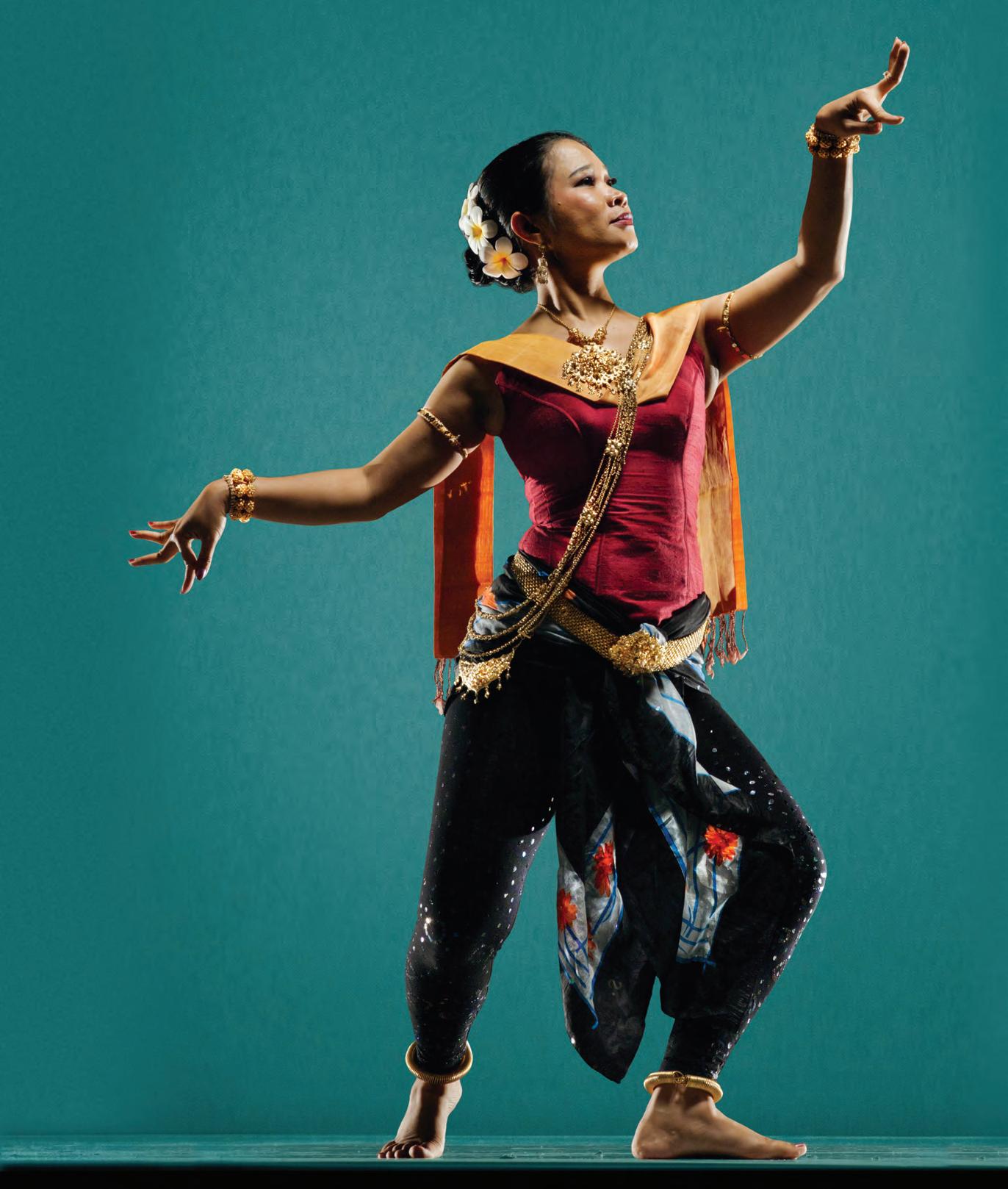
2 minute read
DANCE DIALOGUES
As part of Beyond Bollywood: 2000 Years of Dance in Art, a series of pop-up Dance Dialogues in the exhibition space will feature performers of Indian, Balinese, Cambodian, and Jazz styles and a museum educator (or an Art Speak intern) looking at art with visitors, then moving to a designated area for a brief performance or demonstration, followed by a Q&A. Dance Dialogues will be offered twice a day on the second Sunday and fourth Thursday in April, May, and June, and the second Sunday in July.
Farah Yasmeen Shaikh And The Noorani Dance Company
The Noorani Dance Company is comprised of preprofessional and professional dancers, committed to enlightening minds and hearts through performances and collaborative partnerships across other forms of performing arts. The company’s founder and artistic director Farah Yasmeen Shaikh is an internationally acclaimed Kathak performer, choreographer, and instructor. Having received two decades of training from the late Pandit Chitresh Das, Farah is known for her evocative storytelling and technical precision; her work addresses topics of historical and social relevance while maintaining the classical elements of Kathak. Since 2015, she has been performing and teaching throughout Pakistan, becoming a sought-after presence and contributor to the Pakistani cultural arts landscape.
Antoine Hunter And The Urban Jazz Dance Company
Oakland native Antoine Hunter (aka Purple Fire Crow) is an award-winning and internationally known African American, indigenous, Deaf, and disabled choreographer, dancer, actor, instructor, speaker, producer, and Deaf advocate. Hunter founded the Urban Jazz Dance Company in 2007 and the Bay Area International Deaf Dance Festival in 2013. His work has been performed globally and he has lectured across the U.S. In response to Covid-19, he founded #DeafWoke, an online talk show that amplifies Deaf and disabled stories by people of color as a force for cultural change.


The Urban Jazz Dance Company’s mission is to uplift and provide opportunities for Deaf, hard of hearing, and disabled artists from marginalized backgrounds. The company amplifies visibility and creates opportunities through programming including dance classes for Deaf and hearing dancers; the annual Bay Area International Deaf Dance Festival; Deaf Dance Festivals in locations including San Diego, New York, and Turkey; school engagements, community workshops, and more.
I Madé Moja
I Madé Moja comes from Batuan, a village in Bali known for its classical music, dance, fine woodcarving, and unique painting style. Moja’s father, renowned painter I Madé Budi, passed on the ink and watercolor technique of Batuan to his son, who has taken it in new directions here in the U.S. Moja's work has been shown internationally and featured in numerous books detailing the art and culture of Bali. In addition to teaching and experimenting with new themes in his painting, he is a primary dancer with Gamelan Sekar Jaya, an acclaimed Balinese orchestra and dance group.
Charya Burt
Charya Burt is an acclaimed master dancer, choreographer, vocalist, and teacher of classical Cambodian dance. Established as a bridge between the gods and the kings, classical Cambodian dance can be traced back to the Khmer Angkorian Period more than 1,000 years ago. Between 1975 and 1979, the Khmer Rouge Regime prohibited the art form, killing about 90% of all dancers. Burt trained extensively with Cambodia’s foremost surviving dance masters, eventually joining the dance faculty of Cambodia’s Royal University of Fine Arts. Recipient of the Isadora Duncan Award and fellowships from the 2021 Hewlett 50 Commission, Dance/USA, and Americans for the Arts, Burt’s mission is to continue to preserve and renew her art form. She is the founding artistic director of Charya Burt Cambodian Dance, based in the San Francisco North Bay. n









